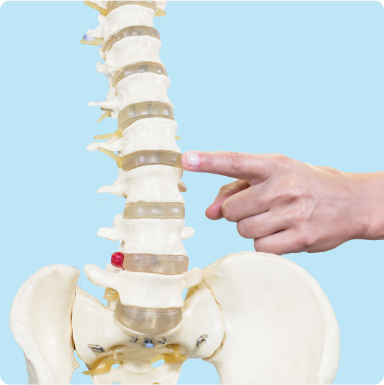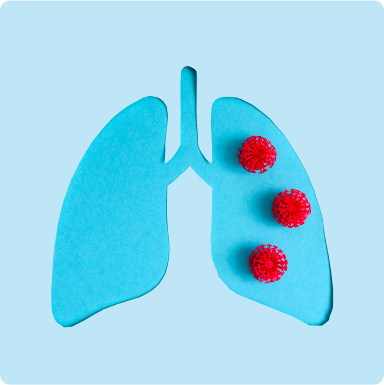Rheumatoid Arthritis
Rheumatoid arthritis is an autoimmune and chronic disease that affects multiple joints.
The development of the disease occurs when the immune system, which normally contributes to protecting the body from infections and diseases, attacks its own tissues.
The disease causes pain, swelling, stiffness, and loss of function in the joints. It can lead to physical limitations and a decline in the quality of life if left untreated. Globally, between 0.5% and 1% of the population suffer from this disease. It affects women more frequently and can begin at any stage of life, although the risk of developing rheumatoid arthritis increases with age.
Rheumatoid arthritis can onset variably, but typically manifests with symptoms of joint inflammation such as morning stiffness, pain, and swelling. These symptoms are often preceded by general discomfort, fatigue, and fever.
The disease usually begins in the small joints of the hands and feet, spreading symmetrically to both sides of the body to larger joints. Joint manifestations constitute the most characteristic expression of rheumatoid arthritis: they are always present, although they vary in terms of location, intensity, and progression.
Around 40% of patients also commonly experience conditions affecting other organs and tissues such as blood vessels, skin, heart, lungs, and eyes, among others.
The exact cause of rheumatoid arthritis is unknown, but it is believed to be an autoimmune disorder involving both genetic and non-genetic factors. Genetic factors increase the risk of developing the disease. Non-genetic factors include infections, female hormones, smoking, stress, obesity, and diet.
Although their role has been investigated, a definitive cause of RA has not yet been proven, and other causal factors, both genetic and non-genetic, continue to be explored.
The diagnosis of rheumatoid arthritis is primarily based on the clinical judgment of the physician. This involves patient interviews and physical examinations, as well as laboratory tests and additional investigations such as blood tests and X-rays of affected joints.
Classification criteria, evaluating symptoms, laboratory data, and radiological images, are used to confirm the diagnosis. In many cases, a differential diagnosis is necessary to rule out other diseases with similar symptoms.
Early diagnosis is crucial to initiate timely treatment in the early stages of the disease and improve the prognosis.
Although there are non-environmental factors that can contribute to the development of rheumatoid arthritis, maintaining healthy lifestyle habits can reduce the risk of developing the disease. Examples of this include avoiding tobacco consumption, reducing caffeine intake, maintaining a healthy diet, engaging in low-impact exercise, reducing obesity, or maintaining good oral hygien

Other pathologies
Alamanos Y, Voulgari PV, Drosos AA. Incidence and prevalence of rheumatoid arthritis, based on the 1987 American College of Rheumatology criteria: a systematic review. Semin Arthritis Rheum2006; 36(3):182-188.
Coordinadora Nacional de Artritis, ConArtritis. Artritis Reumatoide [online] [accessed: september 2023].
Available at: https://www.conartritis.org/todo-sobre-artritis/que-es-la-ar/
Deane KD, Demoruelle MK, Kelmenson LB, Kuhn KA, Norris JM, Holers VM. Genetic and environmental risk factors for rheumatoid arthritis. Best Pract Res Clin Rheumatol. 2017;31(1):3-18. doi:10.1016/j.berh.2017.08.003
Gabriel SE. The epidemiology of rheumatoid arthritis. Rheum Dis Clin North Am2001; 27:269-281.
MAYO CLINIC. Artritis reumatoide. [online] actualizado enero 2023 [accessed: september 2023].
Available at: https://www.mayoclinic.org/es/diseases-conditions/rheumatoid-arthritis/symptoms-causes/syc-20353648
National Institute of Arthritis and Musculoskeletal and Skin Diseases. MedlinePlus.gov. Rheumatoid Arthritis [online] actualizado noviembre 2022 [accessed: september 2023].
Available at: https://www.niams.nih.gov/health-topics/rheumatoid-arthritis
Silman AJ, Pearson JE. Epidemiology and genetics of rheumatoid arthritis. Arthritis Res2002; 4 (Suppl 3):S265-S272.
Wasserman AM. Diagnosis and management of rheumatoid arthritis. Am Fam Physician. 2011;84(11):1245-1252.
Zaccardelli A, Friedlander HM, Ford JA, Sparks JA. Potential of Lifestyle Changes for Reducing the Risk of Developing Rheumatoid Arthritis: Is an Ounce of Prevention Worth a Pound of Cure?. Clin Ther. 2019;41(7):1323-1345. doi:10.1016/j.clinthera.2019.04.021




